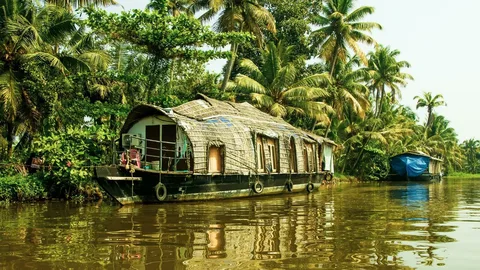Travel & Hospitality
The Influence of Social Media on Travel Choices

In the modern era, social media has become a ubiquitous part of daily life, influencing various aspects of human behavior and decision-making. One of the most significant areas where social media exerts its influence is in travel choices. This article aims to explore the multifaceted ways in which social media impacts travel decisions, examining the mechanisms through which it operates, the platforms involved, and the broader implications for the travel industry.
Role of Social Media in Travel Planning
Social media platforms serve as a primary source of information for prospective travelers. Unlike traditional media, social media offers real-time updates and user-generated content, providing a more authentic and immediate source of information. Travel blogs, vlogs, and social media posts from friends and influencers offer insights into destinations, accommodations, and activities, often influencing the decision-making process.
User-Generated Content

Image by: Yandex.com
User-generated content (UGC) plays a crucial role in shaping travel choices. Reviews, photos, and videos posted by other travelers provide a more relatable and trustworthy source of information compared to traditional advertising. Platforms like TripAdvisor, Yelp, and Google Reviews allow users to share their experiences, thereby influencing the perceptions and decisions of potential travelers.
Influencer Marketing
Influencer marketing has emerged as a powerful tool in the travel industry. Influencers, with their large followings and perceived authenticity, can significantly impact their audience’s travel choices. Collaborations between travel brands and influencers often involve sponsored trips, reviews, and promotional posts, which can drive interest and bookings for specific destinations or services.
Influence of Visual Content
Visual-centric platforms like Instagram and Pinterest have a profound impact on travel choices. Stunning images and videos of exotic locations, luxurious accommodations, and unique experiences capture the imagination of users, often inspiring them to visit these places. The use of hashtags and geotags further enhances the visibility of travel-related content, making it easier for users to discover new destinations.
Virtual Tours and 360-Degree Videos
The advent of virtual tours and 360-degree videos has revolutionized the way travelers explore potential destinations. Platforms like YouTube and Facebook offer immersive experiences that allow users to virtually visit locations before making a decision. This technology provides a more comprehensive understanding of what to expect, thereby influencing travel choices.
Impact of Social Proof
Social proof, in the form of reviews and ratings, plays a critical role in travel decision-making. Positive reviews and high ratings can significantly boost the appeal of a destination, hotel, or restaurant, while negative feedback can deter potential visitors. Travelers often consult multiple review platforms to gather a consensus before making a decision.
Social Media Check-Ins and Shares
The act of checking in at locations and sharing travel experiences on social media serves as a form of social proof. When users see their friends and family visiting certain places, it can create a sense of trust and validation, encouraging them to consider those destinations for their own travels.
Role of Social Media in Travel Trends
Social media has the power to popularize emerging destinations. When influencers or a significant number of users post about a relatively unknown location, it can quickly gain popularity. This phenomenon has led to the discovery of hidden gems and off-the-beaten-path destinations that might not have gained attention through traditional media.
Sustainable Travel
The growing awareness of sustainable travel practices has been significantly influenced by social media. Campaigns and posts promoting eco-friendly travel options, responsible tourism, and conservation efforts have resonated with socially conscious travelers. Platforms like Instagram and Twitter are often used to share information and raise awareness about sustainable travel initiatives.
Challenges and Ethical Considerations
One of the unintended consequences of social media’s influence on travel choices is over-tourism. The rapid influx of visitors to popular destinations can strain local resources, disrupt communities, and damage natural environments. It is essential for travelers and influencers to promote responsible tourism practices to mitigate these negative impacts.
Authenticity and Transparency

Image by: Yandex.com
The authenticity and transparency of social media content are critical factors in its influence on travel choices. Sponsored posts and paid promotions must be clearly disclosed to maintain trust with the audience. Additionally, the portrayal of destinations should be realistic and not overly glamorized to avoid creating false expectations.
Conclusion
The influence of social media on travel choices is undeniable and multifaceted. From information dissemination and user-generated content to influencer marketing and visual storytelling, social media platforms shape the way people plan and experience their travels. While this influence has brought numerous benefits, such as the discovery of new destinations and the promotion of sustainable travel practices, it also presents challenges that must be addressed. By understanding and navigating these dynamics, travelers, influencers, and the travel industry can harness the power of social media to create meaningful and responsible travel experiences.
Business
Atlas Mountains: A Guide to Morocco’s Stunning Landscapes

The atlas mountains morocco are one of North Africa’s most stunning natural wonders. They stretch across the country and offer dramatic landscapes, rich culture, and unforgettable adventures.
From snow-covered peaks to deep valleys, this mountain range attracts travelers from around the world. Moreover, it is perfect for trekking, photography, and cultural exploration.
If you love nature and adventure, this guide will help you plan the perfect trip.
Where Are the Atlas Mountains Located?
The Atlas Mountains stretch across Morocco, Algeria, and Tunisia. However, the most famous and visited section is in Morocco.
High Atlas
The High Atlas is the tallest and most dramatic section. It is home to Mount Toubkal, which stands at 4,167 meters. Therefore, this area is popular for serious trekkers and climbers.
Middle Atlas
The Middle Atlas is known for forests and wildlife. It has cedar trees and peaceful lakes. Because of its mild climate, it is great for relaxed hiking.
Anti-Atlas
The Anti-Atlas is drier and less crowded. However, it offers beautiful rock formations and traditional villages. Each section of the atlas mountains morocco offers a different experience.

Why Visit Atlas Mountains Morocco?
There are many reasons to visit.
First, the scenery is breathtaking. Snow-capped peaks contrast with green valleys and red rock landscapes.
Second, the culture is unique. Many villages are home to the indigenous Berber people. Their traditions, language, and hospitality make every trip special.
Moreover, the mountains are close to major cities like Marrakech. Therefore, you can easily combine a city break with a mountain adventure.
Best Time to Visit
The best time to explore the atlas mountains morocco depends on your goals.
- Spring (March–May): Wildflowers bloom, and the weather is pleasant.
- Summer (June–August): Hot in lower areas, but cooler in high altitudes.
- Autumn (September–November): Clear skies and perfect trekking conditions.
- Winter (December–February): Snow covers the High Atlas. Ideal for climbing, however it can be very cold.
Therefore, spring and autumn are the most comfortable seasons for most travelers.
Trekking in the Atlas Mountains
Trekking is the top activity in the atlas mountains morocco. There are routes for beginners and experts.
Mount Toubkal Trek
Climbing Mount Toubkal is the most famous adventure. It usually takes two days.
The journey starts from the village of Imlil. From there, hikers pass through rocky paths and mountain refuges. Finally, they reach the summit for panoramic views.
Village-to-Village Walks
If you prefer an easier route, choose village treks. These walks allow you to experience Berber culture closely. Moreover, you can stay in local guesthouses and enjoy traditional meals.
Berber Culture and Traditions
The Atlas Mountains are home to the Berber people, also known as Amazigh.
They have lived here for centuries. Their homes are built from stone and clay. Because of the mountain climate, houses are designed to stay warm in winter and cool in summer.
Hospitality is very important in Berber culture. Visitors are often welcomed with mint tea and fresh bread.
Therefore, visiting the atlas mountains morocco is not only about landscapes. It is also about meaningful cultural experiences.
Wildlife and Nature
Nature lovers will enjoy the biodiversity of the region.
In the Middle Atlas, you may see Barbary macaques. In higher areas, you can find mountain birds and unique plants.
Moreover, the changing scenery—from green valleys to rocky cliffs—makes every hike visually exciting.
Because the air is clean and the environment is peaceful, many visitors come here to relax and disconnect from busy city life.
How to Get There
Most travelers start their journey from Marrakech.
From Marrakech, you can reach Imlil village in about 1.5 hours by car. Public transport is available. However, private transfers are more comfortable.
Guided tours are also popular. They often include transport, meals, and accommodation.
For a safe and well-organized experience, many travelers choose Mttoubkaltrek. They provide expert local guides and customized trekking packages. Moreover, their team understands the terrain and weather conditions very well.
Travel Tips for Atlas Mountains Morocco
Here are some useful tips:
- Wear comfortable hiking shoes.
- Bring layers because temperatures change quickly.
- Carry sunscreen and a hat.
- Respect local customs and dress modestly.
- Hire a local guide for longer treks.
Because mountain weather can change suddenly, preparation is very important.
Also, always inform someone about your travel plan if you hike independently.
Accommodation Options
There are many options in the atlas mountains morocco.
You can stay in traditional guesthouses in villages. These are simple but comfortable.
Moreover, mountain refuges are available for climbers. In some areas, you can also find eco-lodges with modern facilities.
If you prefer organized tours, Mttoubkaltrek offers complete trekking packages. These include accommodation, meals, and experienced guides. Therefore, you can focus fully on enjoying the adventure.
Photography and Scenic Views
The Atlas Mountains are a paradise for photographers.
Sunrise over the peaks creates golden light. Moreover, sunset colors make the valleys glow beautifully.
Snow in winter adds another layer of magic. Therefore, bring a good camera or smartphone to capture these moments.
Conclusion
The atlas mountains morocco offer something for everyone. Whether you want adventure, culture, or relaxation, this region delivers an unforgettable experience.
From climbing Mount Toubkal to exploring peaceful Berber villages, every journey is unique. Moreover, the landscapes are diverse and breathtaking.
Because of easy access from Marrakech, planning a trip is simple. However, choosing the right guide can make a big difference.
With proper planning and local support, your trip to the Atlas Mountains will be safe and memorable. Start your adventure today and discover the natural beauty and rich heritage of Morocco’s most iconic mountain range.
Art /Entertainment
Homestays in Kasaragod: Backwaters, Beaches, and Tranquility

Introduction
If you are looking for a calm and refreshing escape in northern Kerala, choosing a homestay in Kasaragod is one of the best ways to experience true serenity. Kasaragod is famous for its pristine beaches, picturesque backwaters, undulating hills, and serene village life. Unlike more commercial tourist hubs, this district offers a slower pace, making it perfect for travelers who value privacy, nature, and authentic hospitality.
A homestay allows you to experience Kerala beyond sightseeing. You wake up to fresh air, enjoy home-cooked meals, and connect with local families who warmly welcome guests into their homes. The peaceful environment, combined with genuine hospitality, creates a memorable stay.
Why Kasaragod Is Ideal for a Peaceful Stay
Kasaragod blends coastal charm with rural beauty. Attractions such as Bekal Fort, Valiyaparamba Backwaters, and Ranipuram Hills add to the district’s appeal. However, what truly makes Kasaragod special is its calm atmosphere. The beaches are less crowded, the countryside remains green and open, and traditional homes maintain their heritage character.
Most homestays are located in serene setting near beaches, backwaters, or plantations offering guests quiet mornings and relaxing evenings. The absence of heavy commercialization ensures a tranquil experience.

Best Homestays in Kasaragod for a Relaxing Experience
When searching for the best homestays in Kasaragod, consider properties that focus on natural surroundings, personal care, and traditional architecture. Here are the types of homestays that offer a peaceful Kerala stay:
1. Backwater Homestays
Homestays near Valiyaparamba Backwaters provide calm water views and a soothing atmosphere. Guests can enjoy canoe rides, sunset views, and fresh seafood prepared in traditional Kerala style. The quiet surroundings make these stays ideal for couples and nature lovers.
2. Beachside Homestays Near Bekal
Beachside homestays near Bekal offer easy access to quiet shorelines without the rush of large resorts. Morning walks along the beach and evening views of the sea create a deeply relaxing experience. These homestays often provide spacious rooms and open verandas where guests can unwind.
3. Plantation and Countryside Homestays
For those who prefer greenery, plantation homestays in areas like Nileshwar and Badiadka offer a refreshing escape. Enclosed by coconut palms, areca nut plantations, and rice paddies, these residences enable visitors to reconnect with the natural world. Some hosts even introduce visitors to farming activities and local village life.
What Makes Homestays in Kasaragod So Peaceful?
Personalized Hospitality
Hosts treat guests like family rather than customers. This personal attention ensures comfort and creates a welcoming environment.
Authentic Kerala Cuisine
Most homestays serve freshly prepared meals made from local ingredients. Traditional dishes such as appam, fish curry, puttu, and vegetable curries are often part of the experience.
Natural Surroundings
Whether near hills, backwaters, or beaches, homestays in Kasaragod are usually surrounded by greenery and open spaces. The quiet rural setting enhances relaxation.
Less Crowd and Noise
Kasaragod remains relatively untouched compared to major tourist centers. This means fewer crowds, less traffic, and more privacy.
Activities to Enjoy During Your Stay
A peaceful stay does not mean limited activities. You can explore historic forts, take boat rides in the backwaters, trek in the hills, or simply relax in a garden with a book. Village walks and interactions with locals offer insight into Kerala’s traditions and lifestyle.
If you prefer a slow holiday, you can spend your time enjoying sunsets, tasting local cuisine, and appreciating the natural surroundings.
Best Time to Visit
The ideal time to visit Kasaragod is between October and March when the weather is pleasant and comfortable. Monsoon season also brings lush greenery and fewer tourists, making it suitable for those seeking extra solitude.
Tips for Choosing the Right Homestay
- Select a location based on your preference—beach, backwater, or countryside.
- Read guest reviews to understand service quality.
- Confirm meal arrangements and amenities.
- Check accessibility and transport options if the property is remote.
Clear communication with your host ensures a smooth and satisfying stay.
Frequently Asked Questions (FAQ)
1. What makes homestays in Kasaragod different from hotels?
Homestays in Kasaragod offer a more personal and culturally immersive experience compared to hotels. Guests stay with local families, enjoy home-cooked meals, and experience daily life in a traditional Kerala setting.
2. Are homestays in Kasaragod suitable for families?
Yes, homestays in Kasaragod are ideal for families. Many properties offer spacious rooms, safe surroundings, and a peaceful environment perfect for children and elders.
3. Do homestays in Kasaragod provide meals?
Most homestays in Kasaragod provide traditional Kerala meals, either included in the package or available on request. It is always recommended to confirm meal options while booking.
4. Are homestays in Kasaragod safe for solo travelers?
Yes, homestays in Kasaragod are generally safe for solo travelers. Hosts maintain a secure and welcoming atmosphere, making guests feel comfortable and cared for.
5. What is the average cost of homestays in Kasaragod?
The price of homestays in Kasaragod varies depending on location, amenities, and season. However, they are usually affordable compared to resorts and hotels, offering good value for money.
Development
Dubai Visa Consultancy: Your Guide to Seamless Applications

Dubai is a city full of opportunities. People from different countries live and work here. Many residents in Dubai plan to study abroad, work overseas, or apply for immigration programs. However, visa procedures can be confusing and full of paperwork. This is where professional visa consultancy services in Dubai become very helpful.
If you are searching for the best immigration consultants in Dubai or a trusted visa expert in Dubai, this guide will help you understand everything in simple and clear language.
What Are Visa Consultancy Services in Dubai?
- Student visas
- Work visas
- Immigration visas
- Visit visas
- Business visas
The best immigration consultants in Dubai guide applicants step by step. They explain the rules, prepare documents, and help avoid mistakes.
A qualified visa expert in Dubai understands embassy procedures and keeps updated with changing immigration policies.

Why People Need Visa Consultancy Services
Applying for a visa is not always easy. Every country has its own rules. Some countries require interviews, while others ask for financial proof, medical tests, or background checks.
Here are some reasons people choose the best immigration consultants in Dubai:
- Complex documentation requirements
- Changing immigration laws
- Fear of rejection
- Lack of knowledge about procedures
- Time saving support
A professional visa expert in Dubai ensures that your application is complete and properly prepared.
Types of Visa Services Available
Visa consultancy services in Dubai usually cover many categories.
1. Student Visa Services
Students who want to study abroad often need help with:
- University admission
- Document preparation
- Visa filing
- Interview preparation
The best immigration consultants in Dubai guide students from admission to visa approval.
2. Work Visa Services
Professionals planning to work abroad need:
- Job offer verification
- Employment contracts
- Visa documentation
- Embassy submission
A visa expert in Dubai checks all documents carefully to avoid delays.
3. Immigration and PR Services
Some people want permanent residency in countries like Canada, Australia, or Europe. The best immigration consultants in Dubai help with:
- Eligibility assessment
- Points calculation
- Application submission
- Follow up with immigration authorities
Immigration cases require special knowledge, so guidance from a visa expert in Dubai is important.
How to Choose the Best Immigration Consultants in Dubai
Not all consultants offer the same quality of service. Before selecting, consider these factors:
Experience
Choose consultants with years of experience in handling different visa categories.
Transparency
The best immigration consultants in Dubai provide clear fee structures without hidden charges.
Updated Knowledge
Immigration laws change frequently. A professional visa expert in Dubai stays updated with new regulations.
Positive Reviews
Check client reviews and success stories before making a decision.
Step by Step Visa Application Process
Although each country has different rules, the general process looks like this:
Step 1: Initial Consultation
You meet with a visa expert in Dubai to discuss your goals.
Step 2: Eligibility Assessment
Consultants check if you meet the visa requirements.
Step 3: Document Preparation
All documents are prepared and verified carefully.
Step 4: Application Submission
Your application is submitted to the relevant embassy or immigration authority.
Step 5: Interview or Biometrics
If required, you attend an interview or provide biometric data.
The best immigration consultants in Dubai guide you during every step.
Common Mistakes to Avoid
Many applicants make simple mistakes, such as:
- Submitting incomplete forms
- Providing incorrect financial statements
- Missing deadlines
- Not preparing for interviews
These mistakes can cause delays or visa rejection. A visa expert in Dubai helps reduce such risks.
Benefits of Hiring a Visa Expert in Dubai
There are many benefits of working with professionals:
1. Time Saving
Consultants handle paperwork efficiently.
2. Reduced Stress
You feel confident knowing experts are guiding you.
3. Accurate Documentation
The best immigration consultants in Dubai ensure documents meet embassy standards.
4. Professional Advice
A visa expert in Dubai can suggest suitable visa options based on your profile.
Student and Family Visa Support
Many families living in Dubai apply for dependent visas or student visas together. Visa consultancy services in Dubai assist with:
- Family sponsorship
- Dependent visa filing
- Student guardian visas
The best immigration consultants in Dubai understand family-based applications and guide accordingly.
Importance of Financial Documentation
Most visa applications require proof of financial stability. This may include:
- Bank statements
- Salary certificates
- Tax returns
- Sponsorship letters
A visa expert in Dubai ensures financial documents are organized properly to meet embassy requirements.
Interview Preparation and Guidance
Some countries require visa interviews. Proper preparation is very important.
The best immigration consultants in Dubai provide:
- Mock interview sessions
- Common question practice
- Guidance on body language
- Confidence-building tips
A trained visa expert in Dubai helps applicants present their case clearly and honestly.
Keeping Up with Changing Immigration Laws
Visa rules can change suddenly due to:
- Policy updates
- Political changes
- New immigration programs
- Security regulations
The best immigration consultants in Dubai stay informed about such changes and guide clients accordingly.
A knowledgeable visa expert in Dubai regularly checks official embassy updates to avoid outdated information.
Ethical and Professional Practices
Reliable visa consultancy services in Dubai follow ethical standards. They:
- Do not guarantee visas
- Provide honest assessments
- Avoid fake documentation
- Respect client privacy
Choosing the best immigration consultants in Dubai means choosing transparency and professionalism.
Final Thoughts
Visa consultancy services in Dubai play an important role in helping students, professionals, and families achieve their international goals. Whether you plan to study abroad, work overseas, or apply for immigration, expert guidance can make the process easier.
The best immigration consultants in Dubai provide structured support, clear communication, and updated knowledge of visa regulations. A qualified visa expert in Dubai helps applicants avoid mistakes and prepare strong applications.
Before choosing a consultant, research carefully, ask questions, and ensure transparency. With proper guidance and preparation, your journey toward international education, career, or immigration can become smooth and successful.
-
Business3 years ago
Cybersecurity Consulting Company SequelNet Provides Critical IT Support Services to Medical Billing Firm, Medical Optimum
-
Business3 years ago
Team Communication Software Transforms Operations at Finance Innovate
-
Business3 years ago
Project Management Tool Transforms Long Island Business
-
Business3 years ago
How Alleviate Poverty Utilized IPPBX’s All-in-One Solution to Transform Lives in New York City
-
health3 years ago
Breast Cancer: The Imperative Role of Mammograms in Screening and Early Detection
-
Sports3 years ago
Unstoppable Collaboration: D.C.’s Citi Open and Silicon Valley Classic Unite to Propel Women’s Tennis to New Heights
-
Art /Entertainment3 years ago
Embracing Renewal: Sizdabedar Celebrations Unite Iranians in New York’s Eisenhower Park
-
Finance3 years ago
The Benefits of Starting a Side Hustle for Financial Freedom






























